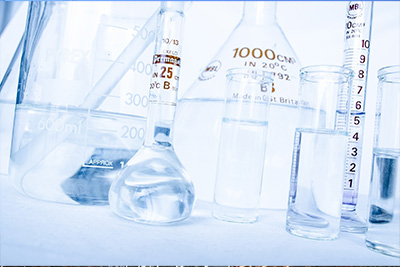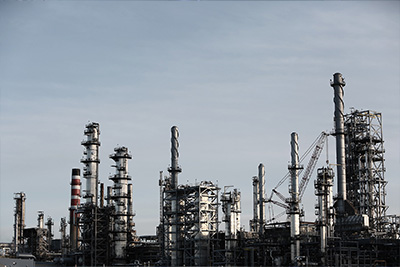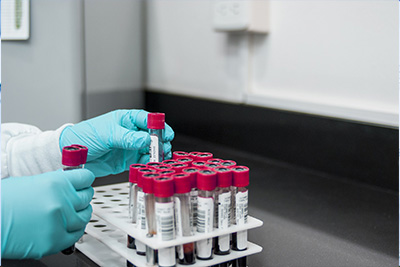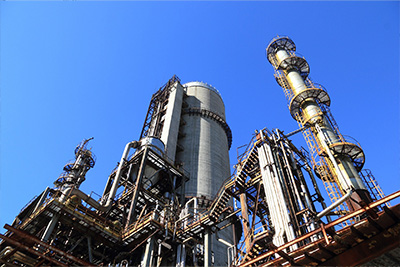-
![Exploring the Role···]() 2024-11-28 Exploring the Role of Methyltin Merc···
2024-11-28 Exploring the Role of Methyltin Merc···This study investigates the use of methyltin mercaptide as an effective stabilizer to enhance the durability of polyvinyl chloride (PVC) materials, particularly for long-term outdoor applications. The research highlights how this compound significantly improves the resistance of PVC to thermal degradation and UV radiation, which are major factors contributing to material degradation in outdoor environments. Through detailed analysis and testing, the findings demonstrate that incorporating methyltin mercaptide leads to extended service life and enhanced performance of PVC products exposed to prolonged outdoor conditions.
read more > -
![Analytical Techniq···]() 2024-11-28 Analytical Techniques for Detecting ···
2024-11-28 Analytical Techniques for Detecting ···This review article provides a comprehensive overview of analytical techniques used to detect methyltin mercaptide residues in plastic products. It covers various methods such as gas chromatography-mass spectrometry (GC-MS), high-performance liquid chromatography (HPLC), and other spectroscopic techniques. The article discusses the advantages and limitations of each method, highlighting their applicability in different scenarios. Additionally, it emphasizes the importance of these detection techniques in ensuring the safety and quality of plastic products in various industries.
read more > -
![Heat Stability Per···]() 2024-11-28 Heat Stability Performance of Methyl···
2024-11-28 Heat Stability Performance of Methyl···The study investigates the heat stability performance of methyltin mercaptide in PVC products under various processing conditions. Results indicate that the thermal stability of methyltin mercaptide varies significantly depending on factors such as temperature, processing time, and the presence of other additives. Higher temperatures and extended processing times tend to degrade its stabilizing effectiveness. Additionally, interactions with other additives can either enhance or diminish its performance. Understanding these dynamics is crucial for optimizing the use of methyltin mercaptide in PVC manufacturing processes to ensure product quality and longevity.
read more > -
![Comparative Enviro···]() 2024-11-28 Comparative Environmental Safety of ···
2024-11-28 Comparative Environmental Safety of ···This study evaluates the comparative environmental safety of methyltin mercaptide and other organotin stabilizers used in the plastics industry. It examines their impact on ecosystems, focusing on biodegradability, toxicity to aquatic organisms, and potential for bioaccumulation. The findings suggest that methyltin mercaptide exhibits lower environmental risk compared to other organotin compounds, making it a potentially safer alternative for industrial applications.
read more > -
![The Role of Methyl···]() 2024-11-28 The Role of Methyltin Mercaptide in ···
2024-11-28 The Role of Methyltin Mercaptide in ···Methyltin mercaptide plays a crucial role in reducing the emission of volatile organic compounds (VOCs) during the processing of polyvinyl chloride (PVC). As an effective stabilizer, it minimizes the decomposition of PVC under high temperatures, thereby decreasing the formation of harmful VOCs. This not only enhances the environmental sustainability of PVC production but also improves the overall quality and durability of the final product. The use of methyltin mercaptide thus represents a significant advancement in mitigating the ecological impact of PVC manufacturing processes.
read more > -
![Regulatory Standar···]() 2024-11-28 Regulatory Standards for Methyltin M···
2024-11-28 Regulatory Standards for Methyltin M···The article discusses the regulatory standards governing the use of methyltin mercaptide in industrial applications. It highlights key safety concerns, compliance requirements, and explores future trends in this field. The focus is on ensuring the safe handling and disposal of methyltin mercaptide to prevent environmental contamination and health risks. Additionally, it examines current regulations and their enforcement mechanisms, emphasizing the need for continuous improvement and adaptation to new scientific findings and technological advancements.
read more > -
![Understanding the ···]() 2024-11-28 Understanding the Mechanisms of Meth···
2024-11-28 Understanding the Mechanisms of Meth···The interaction between methyltin mercaptides and polyvinyl chloride (PVC) was investigated to understand its impact on the thermal decomposition process. Results indicate that methyltin mercaptides significantly influence the thermal stability and degradation pathways of PVC. Specifically, these compounds act as stabilizers by forming complexes with tin, which reduces the release of HCl during thermal treatment. This interaction delays the onset of PVC decomposition, thereby enhancing its thermal stability. The findings provide valuable insights into the mechanisms governing the stabilization of PVC under thermal stress, with implications for improving material performance in various applications.
read more > -
![Chemical Structure···]() 2024-11-28 Chemical Structure and Properties of···
2024-11-28 Chemical Structure and Properties of···The chemical structure and properties of methyltin mercaptide have been investigated, highlighting its potential for industrial applications in polyvinyl chloride (PVC) stabilization. This compound exhibits favorable characteristics such as high thermal stability and efficient free radical scavenging capabilities, making it an attractive candidate for use in PVC manufacturing processes. Its molecular structure facilitates effective interaction with PVC molecules, thereby enhancing the material's resistance to degradation over time. These findings underscore the practical implications of using methyltin mercaptide as a stabilizer in the PVC industry.
read more > -
![Optimizing Methylt···]() 2024-11-28 Optimizing Methyltin Mercaptide Dosa···
2024-11-28 Optimizing Methyltin Mercaptide Dosa···This study focuses on optimizing the methyltin mercaptide dosage in both rigid and flexible PVC applications to improve thermal stability. Through a series of experiments, the research identifies the optimal concentration that maximizes thermal resistance without compromising other properties of PVC materials. The results indicate that a well-calibrated methyltin mercaptide dosage significantly enhances the performance of PVC products under high temperature conditions, making it a crucial factor in manufacturing processes. This optimization can lead to extended product life and reduced maintenance costs in various PVC applications.
read more >








